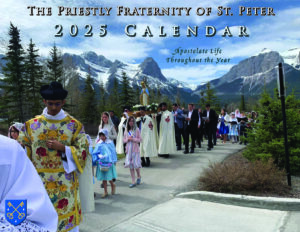On the Motives of the North American Martyrs: Part 2
As we know, the phrase Church militant is not very popular nowadays, possibly because the sound of it seems so opposed to the modern conception of love and peace and nicety which, for the most part, is romanticized and sentimental.
Catholicism, at its core, is anything but romanticized and sentimental.
Since it originates in Christ, our holy Faith when lived has the same effect as the Incarnation: penetrating, invigorating, convicting, transforming, certain, secure, filling one with hope and zeal, especially because it creates a perspective on suffering that gives real meaning to it. Of course, being sympathetic and compassionate to the sufferings of another, no matter who they are – which we all must be in imitation of Christ – hardly means sacrificing one ounce of the integrity of the Faith or our conviction of truth. And this is how our lives are to be seen as forfeit for the sake of Christ.
Do we not find this to be, then, the motive of the martyrs that blanket the history of the Church?
When reading the history of the missionary efforts of the North American Martyrs, our modern “tolerant” and politically correct world has no choice but to hold their labor in disdain, calling it insensitive, perhaps imperialistic, an unwelcome and unnecessary intrusion upon autonomous and “peaceful” cultures that were best left to themselves (regardless if, in reality, they were locked in brutal war with one another).
If the injustices committed during colonization are cited as support for this argument, and there were many, we need to remember that those injustices were at the hands of corrupt individuals or governments seeking to exploit the natives for monetary gain. That is not the spirit of Christ, and the missionary efforts had nothing to do with that; in fact, throughout history we see the missionaries condemning such things.
Quite to the contrary, St. Isaac Jogues and his companions looked upon the natives, not in some economic and utilitarian way, but as souls Christ had redeemed by His Blood who, since they did not know that, were considered as the poorest of the poor.
When was the last time we heard of the poor described as that, of those ignorant of the Faith rather than being monetarily and materially needy? To these missionaries, the natives were truly victims of darkness and idolatry and stood in need of the real freedom only the Holy Faith could give, a depraved nation on account of never hearing the name of Jesus Christ, true God and true Man, ignorant of the perfections and wonders of His life, the power of His Cross, and the effects of His Sacraments.
This is why they sought to evangelize them.
Think about all that we as Catholics take for granted: Baptism, the Holy Mass, the Holy Eucharist, the parables of our Lord that we hold so dear and that give us faith and hope, the Our Father, the Blessed Mother, the Rosary, the security of the Church’s maternal authority under the Pope and Magisterium – all these things and much more did the missionaries regard as far more important than their own lives so as to impart them to ignorant peoples for the salvation of their souls, empowering them with the responsibility and freedom to love Christ, taking Christ’s command to heart to go and teach and baptize.
And it is this flame of holy charity that compelled them to repeatedly undergo unspeakable tortures to plant the seeds for the eventual conversion of all the tribes to the true Faith of Jesus Christ and to His Holy Catholic Church, to turn them away from darkness and frustrate the advance of Satan’s kingdom.
When we read the epic accounts of the North American martyrs, perhaps we stand in disbelief over what our Lord asked these men to endure for His sake in order to secure the Kingdom for themselves and for others.
In fact, these missionary-martyrs would see little visible profit from their efforts (their journals even make mention of discouragement over the seemingly low conversion rate, although trying to temper that with a willingness to suffer for Christ).
We are the ones who get to enjoy the fruit reaped from the seeds of their humble and inspiring sacrifices, a bounty in which we are included. Therefore, the true apostle cannot stand to have things just live and let live if, in so doing, ignorance of Christ triumphs. Granted, sometimes we cannot say anything to change a situation, but we can endure patiently and use that time to strengthen hope in Christ’s victory.
For these martyrs, it was the conviction of their faith, a conviction which the world calls intolerant but from which the believer draws inspiration, that drove them literally into the wilderness to follow Christ’s call.
Is the call then any less for the Catholic today?
Perhaps it is even more imperative. We live in moral wilderness. Is the world really anything different than the savage conditions the martyrs labored under? Don’t let the iPods and computers and technology fool you: they amount more or less to a smoke-screen of sophistication that hides a prevailing blindness in regard to eternal truths and realities.
Ironically, in this age of information, the one thing that ought to be known goes ignored, and so the modern world is no less a victim of the idolatry of selfishness, greed and lust. Even more depraved, in fact, from once upon a time having heard the name of Jesus Christ and then rejecting it: He came unto His own, and His own received Him not.
To be continued….
September 28, 2020








